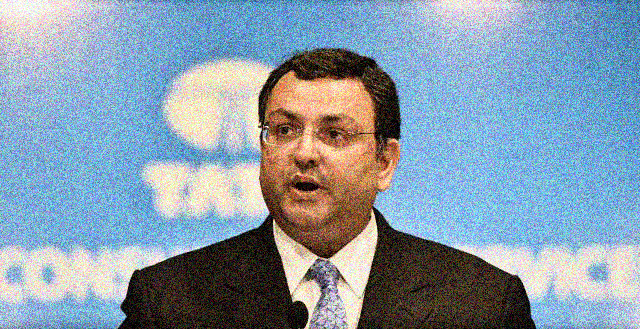Mistry removal: A clash of principles
Ravi Shanker Kapoor | October 26, 2016 11:00 pm

L’affaire Tata has started unraveling—and that is sad. Markets regulator Securities & Exchange Board of India or Sebi is tracking developments in the most respected corporate group. There is also the possibility of a protracted legal battle. There could be other ramifications as well. As Jagjit Singh sang, “Baat niklegi to phir door talak jayegi…”
To begin with, there are no charges of corruption so far against any of the dramatis personae. At the heart of the controversy there is a clash of principles rather than a battle of egos. “At the Tata group we are committed to improving the quality of life of the communities we serve,” says the group website. “We do this by striving for leadership and global competitiveness in the business sectors in which we operate.”
Then there are “core values.” The five core Tata values are: pioneering; integrity (to be “fair, honest, transparent, and ethical in our conduct”); excellence; unity; and responsibility.
Frankly, almost all corporations say such laudable things; what they do in practice, though, is another matter altogether. Fortunately or unfortunately, the Tatas actually seem to believe in what they profess. This is the reason that the group is still held in high esteem at large despite Ratan Tata’s name appearing in Niira Radia tapes.
Evidently, Ratan Tata made his empire much bigger with a global presence by functioning in harmony with the principles and values of his group; and his expectation from Cyrus Mistry was that the journey would continue in a similar vein.
Mistry’s focus, however, was more on consolidation and his approach was businesslike rather than emotional. Which is not wrong, for a business tycoon is expected to maximize profit for his shareholders and not to improve the quality of life of communities; he is supposed to be professional rather than sentimental. Misty underlined this in a confidential email to Tata Sons board members. He has reportedly said that his predecessor Ratan Tata’s loss-making Nano car project consistently lost money but could not be shut down for “emotional reasons.” Of course, he also alleged that the continuance of the project personally benefits Tata.
Where Mistry has erred mainly is his disregard for the core values of the Tata group. Yes, the raison d’etre of private enterprise is profit, but there is nothing immoral if a company wants to exist as something else—which the Tata group has wanted to. Further, the group has done it quite profitably for more than a century. It grew under the Raj; it survived the socialist era; it has thrived in the liberalized regime. He shouldn’t have become group chairman if he had no faith in its core values in the first place. If you are a pacifist, don’t join the army.
Further, Mistry could not have been unaware of the plans of Ratan Tata, who had handpicked him. Tata was very keen on the automotive business as evident from the pains he took for the launch of the Nano. Mistry’s enthusiasm did not match his mentor’s. The results too were scarcely encouraging.
The telecom sector proved to be even worse. The partnership with Docomo cost the Tata group $1 billion after it lost the case in London. The group’s European steel business was in the doldrums when Mistry took charge. In almost four years at the helm of affairs, he was not able to make things better. In the defence sector, Mistry was not able to make major forays despite the government opening up production for private enterprises. The hospitality sector too languished.
The group’s dependence on TCS, which provides over two-thirds of net profit, has been increasing at an alarming rate.
Against this backdrop, the sacking of Mistry cannot be called unusual. The manner in which he has been removed could have been smoother, though. Unsurprisingly, he is angry; the above-mentioned email is a testimony to his anger. But one hopes that Mistry would not make his unceremonious removal an issue, for this would hurt him as well, since his family owns 18 per cent equity in the group.































